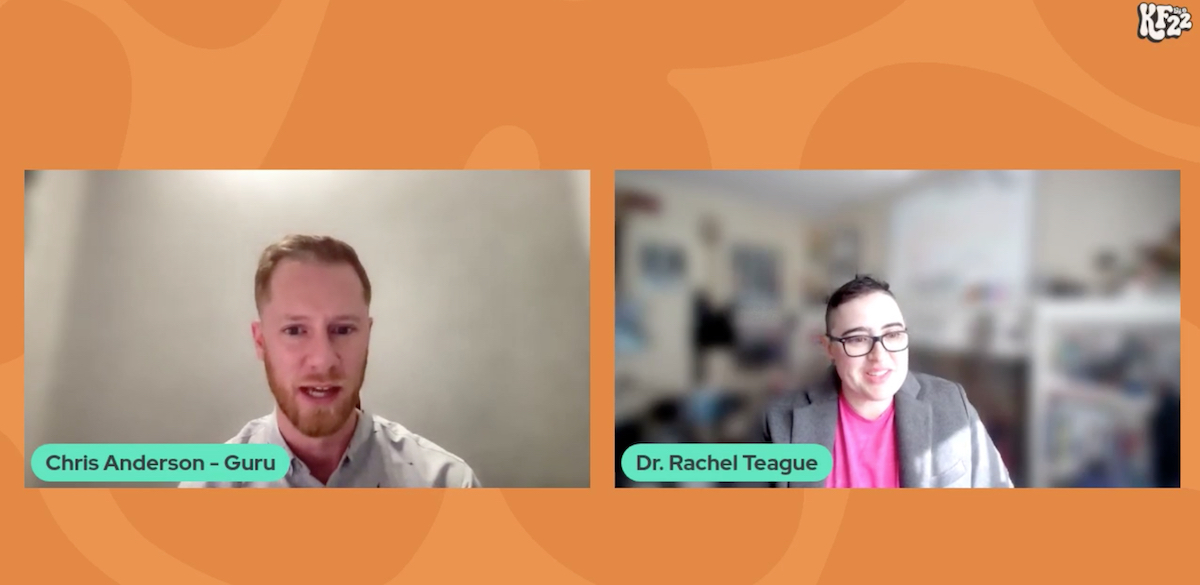There are plenty of reasons companies hate turnover, and while many have to do with losing a valued employee, the transfer of institutional knowledge from one person to the next often provides a unique challenge.
It’s one of the foci of work for Rachel Teague, a knowledge management and training specialist with Southern New Hampshire University who also curates courses for the Association for Talent Development, and helps “translate nerd to human knowledge.” She spoke to people ops pros from around the country at Philly-based Guru Technologies‘ Knowledge Fest last week.
Employee turnover is inevitable, Teague said, but there’s ways to make it less painful. It boils down to creating a culture where collaboration is the norm, person-first institutional knowledge is prioritized, and organizations don’t keep people (and their ideas) stuck in silos. These methods should be baked into your company culture — because once an employee decides they’re leaving, capturing their info is a challenge.
Here’s what Teague suggests:
Knowledge transfer from day 1
“By the time you’re ready to throw in the towel, it’s too late,” Teague said of starting early. “You’re either burned out, not interested in sharing, or you’ve said it over and over again and you’re afraid people aren’t listening.”
One way to combat that is to put systems in place to share knowledge from an employee’s first day, Teague said. During onboarding, that can look like the employer outlining what they hope the new employee will learn and do, and map out key parts of success. It could also be introducing shared resources or ways folks can document what they learn along the way.
Spreading information out over time — say, in the first month rather than the first week — can also help an employee feel more adjusted, rather than overwhelmed. It doesn’t serve anyone when a new employee feels like they are overloaded with information.

The ‘people’ side of knowledge transfer
While a lot of knowledge is shared via documents or internal systems, the folks performing their jobs within your organization should be looked at as your greatest asset, Teague told attendees. It might seem obvious, she said, but information about how to best get a task done is usually stored with the person who performs it, not in some internal catalogue.
Knowledge history, institutional knowledge for your company and project ideas are a huge part of a company’s success. Collaborative brainstorming sessions can lead to a wealth institutional knowledge, and your people should be treated as valuable resources, Teague said.
“The person who’s been on your team the longest might come out and say, ‘You know, we tried something like this years ago, let me see if I can find some notes,'” she said. “And you might find some historical knowledge you might not have known about prior to the project.”
Break down silos
In a larger organization, it can be common for employees on different teams to have no clue what others do day to day, Teague said. That can be helped with regularly scheduled check-ins and transparent processes about large projects.
You can make transfer of knowledge a regular practice by talking with different people on your team about projects, tasks and what you work on throughout the day, Teague said. Set up a quarterly meeting where you look at an employee’s job description and what tasks have been added since they started. If someone were to leave their post today, would you, as an employer, have a clear understanding of how to hire the next person to do their role seamlessly?
Regular meetings will not only help with clarity, but will also cut down on redundancy and help find efficient ways to use resources.
“You might find someone in one department is doing something really similar to someone in another department,” Teague said. “And neither of these people know they’re doing the same thing. You’re reinventing the wheel … when you could be combing resources.”
Join the conversation!
Find news, events, jobs and people who share your interests on Technical.ly's open community Slack

Delaware daily roundup: Delmarva Power vendor stats; DelDOT's $15M federal grant; 50 best companies to work for

Delaware daily roundup: Over 4,000 Black-owned businesses uncovered; Dover makes rising cities list; a push for online sports betting

Philly daily roundup: Women's health startup wins pitch; $204M for internet access; 'GamingWalls' for sports venues


